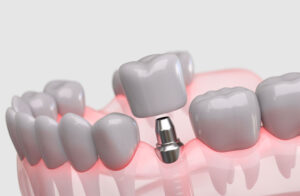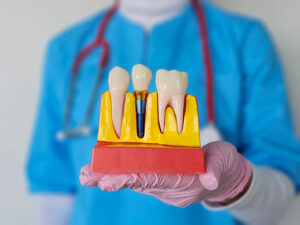A dental cavity is a hole in your tooth caused by decay and grows bigger over time if they are not treated immediately. Because some cavities do not cause pain during the early stages, you might not notice that they are there. Thankfully, tooth decay can be detected early if you regularly visit your dentist.
Cavities and tooth decay are considered some of the world’s most common health issues. Cavities can affect anyone with teeth. It may even come as a shock to learn that you have a cavity. This is particularly true if you believe you practice everyday dental hygiene. Thankfully, if your dentist tells you that you have a cavity, there are ways to cure it and prevent new ones from emerging.
Symptoms of Oral Cavities
The severity of the decay determines the symptoms of a cavity. They are as follows:
- Teeth sensitivity
- Visible hole in the tooth
- Staining on teeth
- Toothache
Causes of Dental Cavities
Cavities can affect anyone, although certain people are at a higher risk than others. Following are some risk factors involved:
- Consuming too many sweet or acidic foods and beverages
- A bad dental hygiene regimen, such as not brushing or flossing on a daily basis
- Not getting enough fluoride
- Dry mouth
- An eating disorder, e.g., bulimia or anorexia
- Acid reflux disease, which could cause stomach acid to wear away your tooth enamel
How to Prevent Dental Cavities
- Brush your teeth after every meal or at least two times a day.
- Floss your teeth once each day, at least.
- Reduce the amount of sugary and acidic foods and beverages that you consume.
- Get dental cleaning done at least twice a year.
Treatment Options for Dental Cavities
Cavities can be treated through:
Tooth Fillings
The dentist will remove the infected and decaying material from a tooth using a drill. Your dentist will then fill the cleaned-out part of the tooth with a material like silver, gold, or composite resin.
Crowns
Your dentist may replace the natural crown of your tooth with a custom-fit cap if the deterioration is severe. Before beginning this procedure, your dentist will remove decayed tooth material.
Root Canal Treatment
When your tooth’s nerves die due to deterioration, your dentist can perform a root canal to save the tooth. They will extract your tooth’s nerve tissue, blood vessel tissues, and any decaying parts. Your dentist will then treat the roots as necessary. Finally, the tooth is filled to restore its form, with possibly a crown attached to it for further protection.
Smile Makers Dental Care offers comprehensive dental care services, including effective treatments for oral cavities. Call Dentist in Concord CA at (925) 685-9339, book online, or visit us at 901 Sunvalley Blvd for more information and appointments.




